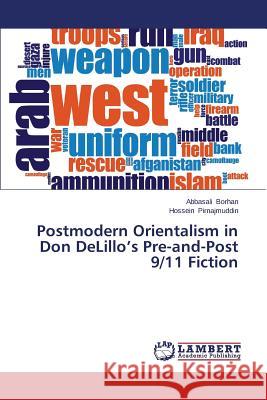Postmodern Orientalism in Don Delillo's Pre-And-Post 9/11 Fiction » książka
Postmodern Orientalism in Don Delillo's Pre-And-Post 9/11 Fiction
ISBN-13: 9783659396526 / Angielski / Miękka / 2014 / 132 str.
Don DeLillo is one of the most prominent figures in contemporary American fiction. This book addresses the intersection between postmodernism and neo-orientalism in his fiction. The writers examine the significance of orientalist discourse, the system of representations about the East, which figures noticeably in DeLillo's fiction, particularly in The Names, Mao II, Cosmopolis, and Falling Man. They argue that this discourse fuses with discourses of terrorism and fundamentalism. Central in this book is the contention that despite the postmodernist claims about the validity of all narratives, DeLillo's postmodern fiction largely excludes the alternative "unwelcome" narratives by disregarding the historical contingencies involved in phenomena such as terrorism.
Don DeLillo is one of the most prominent figures in contemporary American fiction. This book addresses the intersection between postmodernism and neo-orientalism in his fiction. The writers examine the significance of orientalist discourse, the system of representations about the East, which figures noticeably in DeLillos fiction, particularly in The Names, Mao II, Cosmopolis, and Falling Man. They argue that this discourse fuses with discourses of terrorism and fundamentalism. Central in this book is the contention that despite the postmodernist claims about the validity of all narratives, DeLillos postmodern fiction largely excludes the alternative "unwelcome" narratives by disregarding the historical contingencies involved in phenomena such as terrorism.











